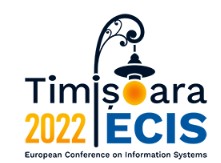Paper Number
1310
Abstract
Due to the rapid changes in work environments caused by the Covid-19 pandemic, leadership has shifted from face-to-face to virtual contexts. Accordingly, the new challenges require specific e-leader traits. To summarize the divergent scholarly discussion, we conducted a systematic review and identified distal (i.e., personality, cognitive abilities, motives and attitudes, and core beliefs) and proximal (i.e., skills) attributes of e-leaders. Our results show that some traditional leader traits such as technological, communication, motivational, and organizational skills are also important for e-leadership. However, certain traits become increasingly important in virtual contexts: e-leaders need adaptability and risk- taking to deal with constant change, and higher cultural, social, and emotional intelligence to foster collaboration in diversified teams. In addition, digital technologies require particular change management, coaching, and trust-building skills. Our findings contribute to the current discussion on e-leadership and help practitioners train their leaders towards the identified e-leader profile.
Recommended Citation
Tuschner, Christian; Krath, Jeanine; Bings, Jan; Schwenkmezger, Marvin; Etzkorn, Manuel; and von Korflesch, Harald F. O., "Leading in the digital age: A systematic review on leader traits in the context of e-leadership" (2022). ECIS 2022 Research Papers. 63.
https://aisel.aisnet.org/ecis2022_rp/63
When commenting on articles, please be friendly, welcoming, respectful and abide by the AIS eLibrary Discussion Thread Code of Conduct posted here.


